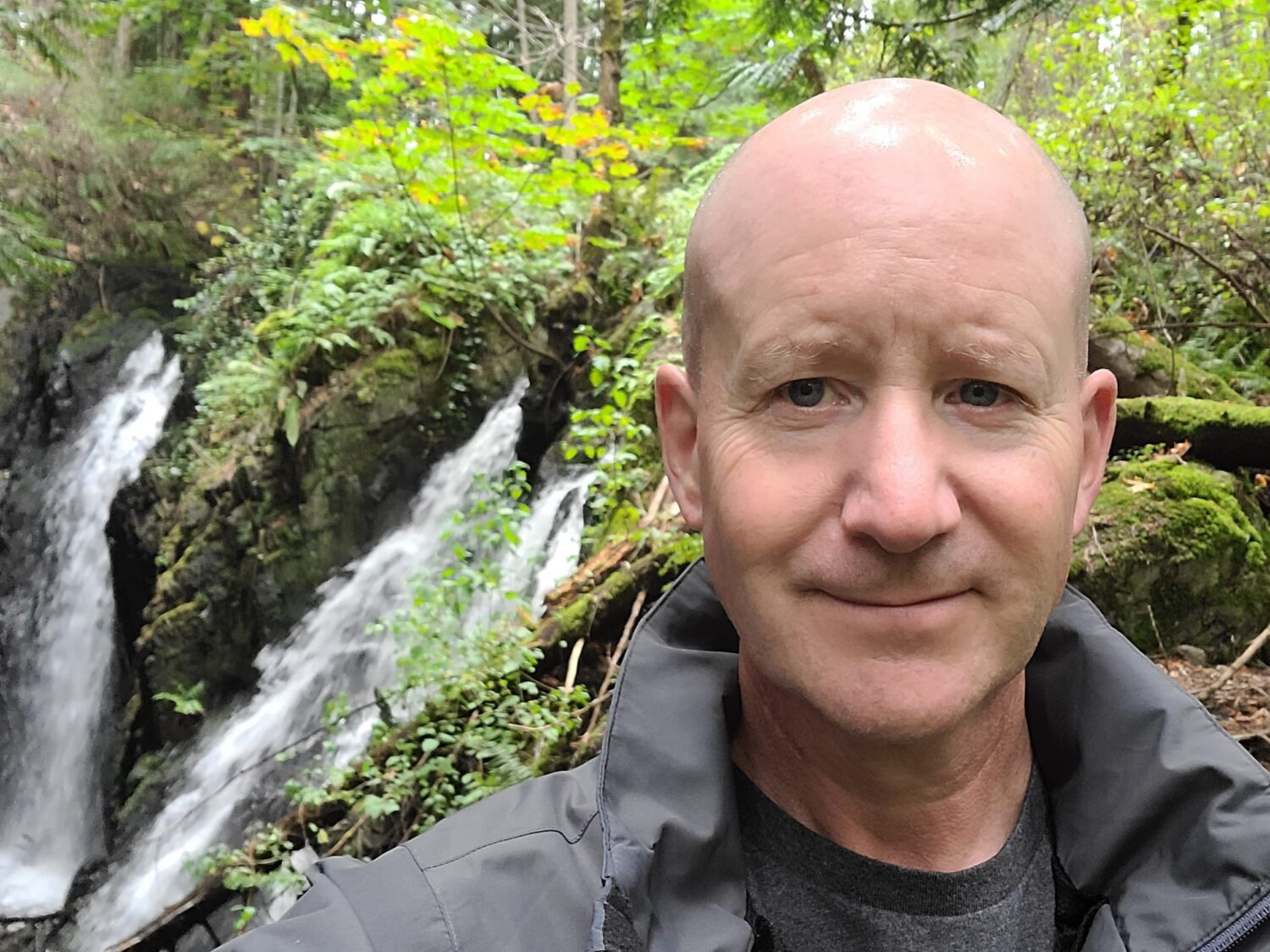IMPM alumnus Joe Gollner is an excellent example of what can emerge from a lifelong commitment to learning that embraces each twist and turn as an opportunity for both personal and professional growth.
From a Bachelors degree in Literature, History and Mathematics from Queens University in Canada, to numerous graduate certificates in topics including Project Management, Business Analysis and Knowledge Management, a Masters in Philosophy gained at Oxford, and 10 years of military experience to boot, Joe was able to use his wide-ranging expertise to build a successful career in consulting and management.
Establishing himself within the tech sector, and launching his own niche technology services company in 1998, Joe placed himself at the forefront of business innovation as an early adopter of web technologies and has since held senior-level leadership positions in tech firms and consultancies across Canada, specialising in digital content capabilities.
No stranger to challenging his own thinking, Joe joined the IMPM in 2019, expanding his understanding of management beyond practice – exploring the five mindsets which structure a program that is accordingly conducted across multiple continents.
Today, Joe is the MD of Gnostyx Research Inc. a venture launched as a venue for conducting research activities on digital content capabilities and how they can fundamentally change and enliven enterprises.
Here, he shared how the IMPM has enabled him to challenge and expand his management mindset further.

What prompted you to join the IMPM?
The IMPM had been on my radar for several years. As a manager of technology ventures, I was already a “student” of management and therefore had become well-acquainted with the work of the IMPM founder, Henry Mintzberg. In retrospect, I wish I had jumped into it many years earlier when it would have no doubt improved how I behaved as a manager, but circumstances were such that I found myself undertaking the IMPM later in life.
Consequently, I undertook the IMPM with a view to conducting a retrospective on my 30 years of experience as a manager. Needless to say, I therefore came to the IMPM with a slightly different goal and perspective than many of my colleagues – I was, to a large extent, intent on studying the “study of management” and looking at the various techniques we might employ to develop the next generation of managers.

What is special about the IMPM?
Where to begin? There are several things that are special about the IMPM. Some are obvious such as its orientation towards engaging, and building upon, the experience of seasoned managers, and its orientation towards challenging participants to immerse themselves in worlds very different from their own. The former builds on the early research of Henry Mintzberg as well as on the work of Reginald Revans, the founder of action learning. The latter capitalizes on the fact that the participants in every IMPM cycle hail from different parts of the world and on the fact that the different program modules are physically run by different universities from around the world.
Everything in this approach challenges managers to “think differently”. In a world that is changing as rapidly as ours (and the world has always been in flux), managers need to emerge ready to do things differently and that will not come from abstract case studies or formulaic business tactics.
There are other things about the IMPM that are special but that may not be so obvious. One of these is the experiential orientation of the program, where each module is associated with immersive experiences that are shared with a group of peers. These experiences stay with you. Another is to be found in the readings associated with the five mindsets, with these frequently delving into topics that are both challenging and profound for participants (no names mentioned) inclined to follow the recommended readings to their logical conclusions.
Yet one more would be its emphasis on reflective writing, something that participants are challenged to do as part of each of the IMPM modules and that is a practice, and a skill, that far too many managers never develop.

What are the most valuable lessons you learned during the IMPM?
As an already seasoned manager (some might say haggard), and as someone already afflicted with a perversely academic bent, I found great value in being able to focus my reading and writing on specific aspects of management and to explore how these aspects had been manifest in my own experience and in that of my fellow participants.
Mine was the “COVID” cycle of the IMPM in that the COVID Pandemic struck while we were in the middle of our learning experience. This forced us all, faculty and participants, to adapt rather quickly so that we could maintain our learning momentum. Given the challenges that COVID posed for so many of us, the fact that the IMPM found a way – through the herculean effort of many people – to continue despite the curtailment of all travel gave many of us a lifeline and the connections we had to our IMPM colleagues proved to invaluable.
I took this change as an opportunity to read and write even more than I might have done if the program had continued on its more experiential path. This fed into my more bookish and scholarly interest in the practice of management, the academic study of management, and the techniques used to develop managers, although I did appreciate that not everyone would feel the same way. I wrote well over 100,000 words in various papers and in posts to a virtual community environment that I helped to put into place as part of our team’s response to COVID. This effort doubtlessly deepened my knowledge of management and my appreciation of the challenges that surround developing good managers.

How is the IMPM experience relevant/helpful to you today?
My IMPM experience is currently relevant to me in two ways. One is that it has prompted me to continue my studies of management at the doctoral level. The second is that it has refreshed my sense of curiosity and my eagerness to kick off new ventures both in my field of professional endeavour (the management of technology) and in fostering new approaches to management and management development. These two avenues support and reinforce each other and together they have helped me to redefine what retirement will look like for me – namely that it will not look at all like “retirement”.

What other insights could you offer about the IMPM that could be helpful to candidates (and/or their organizations) thinking of joining?
There is great value in the fact that the IMPM brings together managers not only from all around the world and from different areas of specialization but also from different points in their careers. I am hoping that my age, experience, and general nerdiness offered something of value to my colleagues. I know, categorically, that I took a great deal from interacting with colleagues who had very different mixes of experience and specialization.
I would also say that while there is great value in the experiential elements of the IMPM, there is also great value in the academic thinking behind those experiences and that people interested in genuinely improving their management practice, and how their organizations behave, take the opportunity of provided by the IMPM to dig into those materials, into those ideas.
Among the things that managers must do is to make sense of the world around them, and then to engage their teams and stakeholders to initiate and guide constructive change. Being able to grapple with challenging ideas and to articulate concepts forcefully in a myriad of ways – through the written word, illustrations, dialogue, to attend to what others are articulating, and to reflect thoughtfully on it all, is a managerial life skill. The value of this skill is quite literally priceless.
If the IMPM is embraced fulsomely, and experienced fully, along both its experiential and its scholarly lines, then you will emerge as the manager you perhaps didn’t know you could be but that your team, your organization, your community, and your world need now more than ever.
